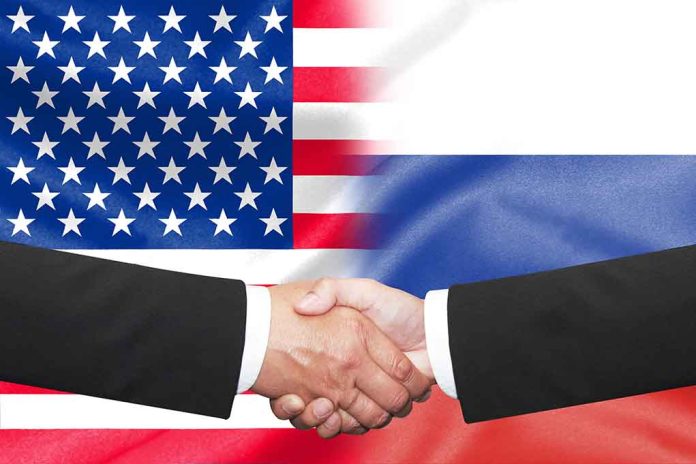
Amid ongoing tensions, Russian President Vladimir Putin has expressed openness to discussions with former U.S. President Donald Trump to resolve the Ukraine conflict.
At a Glance
- Putin offers to negotiate with Trump about the Ukraine conflict.
- Trump claims he can swiftly end the conflict but lacks a detailed plan.
- Tensions remain as Russia seeks to consolidate territorial gains.
- Concerns arise regarding European security and international law.
Possibilities of Peace Talks
Putin has indicated he is willing to negotiate with Trump to resolve the ongoing Ukraine conflict, amid Russia’s claims of military progress within Ukraine. Putin maintains that Russia’s substantial stance can influence any negotiation’s outcome, highlighting his readiness to potentially compromise on the conflict. However, the absence of preconditions for negotiations with Ukraine suggests that there remains room for discussion. Russia aims to consolidate its control over approximately one-fifth of Ukraine and is moving forward with strategic territorial ambitions.
Trump’s promises of a rapid resolution would involve direct talks with both Putin and Ukrainian President Volodymyr Zelenskyy. Yet, these promises lack a concrete strategy or plan outlining the specifics of how such an outcome will be achieved. While Democrats ridicule Trump’s closeness to Putin, emphasizing potential risks to European security, the underlying goal is to focus on achieving peace and mitigating the geopolitical impacts of the ongoing conflict.
'Trump’s idea of negotiating a swift end to the war is unrealistic while Ukraine is fighting an outright invasion for its existence. Stopping the war now on Moscow’s terms will only further encourage Putin’s highly dangerous adventurism,' writes Paul Dibb. https://t.co/mSRkmXHGQf
— ASPI (@ASPI_org) December 2, 2024
Challenges and Considerations
The conflict has heavily impacted Ukrainian territories, with President Zelenskyy asserting that no Ukrainian territories will be ceded. However, Bryan Lanza, former Trump adviser, commented on the impracticality of regaining regions like Crimea, stating, “And if President Zelenskyy comes to the table and says, well we can only have peace if we have Crimea, he shows to us that he’s not serious, Crimea is gone.” Lanza’s remarks could have significant implications for the diplomatic strategies considered by both Russia and Ukraine.
Putin remains opposed to significant territorial concessions, with an insistence that Ukraine abandon any ambitions of NATO membership. Furthermore, any peace talks after Trump’s election will likely consider prior preliminary agreements from early war negotiations. The invasion, which has strained Russia-West relations, has profound economic implications, with substantial casualties and displacements resulting from continued military operations.
Geopolitical Ramifications
Putin’s call for negotiations also underscores the broader geopolitical stakes involved. Trump’s election as the 47th president of the United States might significantly impact the conflict, especially given Trump’s transactional approach to foreign policy. His intent to leverage assets like weapons shipments, financial assistance, and NATO membership can directly influence the course of U.S. international relations.
As Russia seeks to balance its territorial ambitions in Ukraine with its larger geopolitical goals, the potential discussions between Trump and Putin will be critical. While addressing these complex issues remains challenging, the acknowledgment of economic strains and the readiness from both leaders to sit at the negotiation table paves the way for future dialogue and resolution of the conflict.
Sources:
- Trump ally says Ukraine focus must be peace, not territory
- Trump’s Endgame for the War in Ukraine
- Vladimir Putin says Russia is ready to compromise with Trump on Ukraine war – The Economic Times













